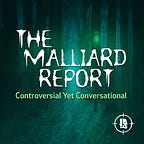Reverend Sherrie James joins The Malliard Report for a grounded conversation about faith, intuition, and what real service looks like when people reach out for help. Instead of chasing spectacle, Sherrie focuses on discernment—how to tell the difference between projection and genuine experience—and the ethics that keep everyone safe: consent, clear boundaries, and the willingness to say “I don’t know.”
We talk through how language shapes outcomes. Words can soothe or inflame; Sherrie shares phrases that reduce fear and keep families engaged in practical steps. From simple rituals and prayer to routine changes and documentation, she outlines a low-drama approach to stabilizing a home before anyone labels it haunted. The theme repeats: people first, phenomena second.
Respectful skepticism is welcome here. Sherrie explains how including skeptics and mental-health perspectives often leads to better outcomes. She also offers a self-care blueprint for helpers: journaling, sleep, supervision, and knowing when to pause. Listeners who value spirituality without sensationalism will feel right at home.
If you’ve been looking for a conversation that treats both faith and the unexplained with maturity, this is it—human, evidence-minded, and deeply practical.
00:00 – Opening & framing
Why Sherrie’s approach resonates with skeptical, curious listeners; setting an evidence-minded, human tone.
05:00 – Sherrie’s path to ministry
Early experiences, study, and the decision to work where faith meets the unexplained.
10:00 – Discernment vs. assumption
How she separates intuition from projection; practical checks that keep experiences honest.
15:00 – Serving people first
What pastoral care looks like when someone reports activity; listening before labeling.
20:00 – Language that helps (and harms)
Choosing words that reduce fear, avoid stigma, and keep doors open for conversation.
25:00 – Boundaries & ethics
When to say “I don’t know,” when to refer out, and why consent matters in spiritual work.
30:00 – Rituals, prayer, and protection
Simple, non-theatrical practices that calm a home and reset a family’s routine.
35:00 – Skeptics at the table
Why respectful skepticism strengthens—not weakens—genuine spiritual encounters.
40:00 – Stories with takeaways
Moments that taught her to slow down, verify, and avoid chasing the “perfect” sign.
45:00 – Community over celebrity
Why quiet, local work beats spectacle; avoiding the trap of performative “help.”
50:00 – Building personal resilience
Self-care for helpers: sleep, journaling, supervision, and knowing your limits.
55:00 – Closing counsel
A starter framework for families: observe, document, normalize routines, and seek balanced help.
Pull Quotes
“Discernment starts where certainty ends—right at ‘I don’t know.’”
“If our words raise fear, we’re not helping—we’re rehearsing a script.”
“Consent and boundaries are spiritual practices, too.”
“People first, phenomena second. That order changes everything.”
“Skepticism isn’t the enemy of faith; it’s a guardrail.”




